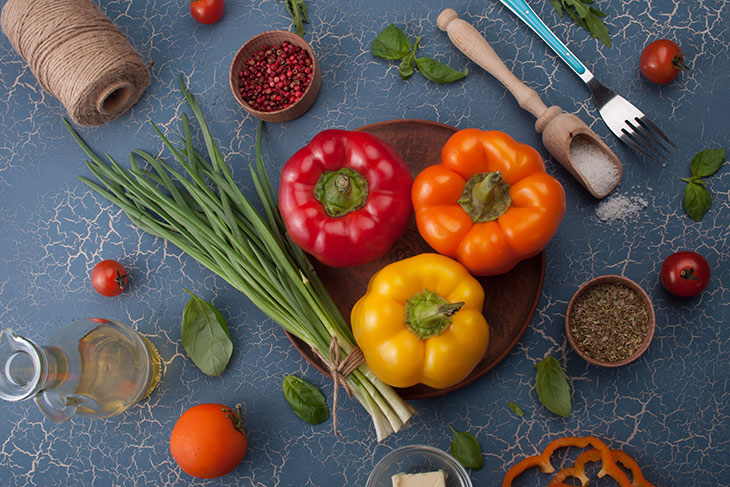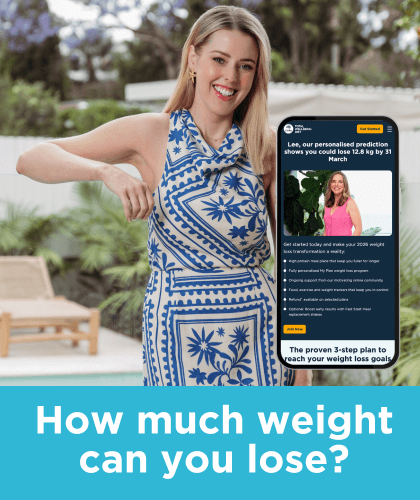5 diet tips that don't work

Are you trying to lose weight but confused about what diet advice to follow?
It can be all too easy to fall into a weight loss trap by following unproven and potentially dangerous weight loss tips and methods.
We take out the confusion in some of the most common weight loss advice that can backfire – Should I be counting my calories? Does fat make me fat? Should I cut out snacking altogether? – and what to do instead.
Are you trying to lose weight? Read our comprehensive guide on weight loss to understand where to begin, what happens when you lose weight, and what doesn't work when it comes to dieting.
1. Fat makes you fat
Fats form an essential part of any healthy diet. They form the basis of cell membranes, allowing them to function correctly, protect and nourish our internal organs, support healthy brain development and heart health, and help absorb fat-soluble vitamins.
While cutting out fat may seem like an effective way to lose weight, it’s actually depriving your body of a vital macronutrient your body needs to function at its best. The key is to choose healthy fat sources that protect your heart and support your overall health, such as nuts, avocados and salmon.
It’s also important to watch out for products branded as 'low fat'. Just because it’s low in fat, it doesn’t always mean it is a healthy choice– it may be high in kilojoules from other sources, typically sugar, which can derail your efforts to lose weight.
On the Total Wellbeing Diet, small amounts of fats come from lean red meat, chicken, oily fish like salmon and low fat dairy products. Fats from butter, cream, lard and fatty meat and chicken provide unnecessary excess kilojoules and can increase your blood cholesterol levels.
Learn more: Healthy fats vs bad fats
2. Stop snacking
While snacking can increase the number of times you eat in a day and potentially increase the amount of food you consume, it can actually be a great way to curb hunger, control portion sizes and make better nutritional choices.
The secret is to keep satiated between meals with a small and healthy snack - like nuts, fruits, and yogurt - that will keep your energy levels up so you’re not ravenous by mealtime which can lead to poor food choices.
But what’s perhaps more important when trying to lose weight, is keeping your main meals balanced with the right amount of protein, carbs and fat to avoid wanting to snack in the first place. Unfortunately, many of us run on fast-release, high GI carbs such as those found in most breakfast cereals, bread and rice which don’t trigger the satiety hormones that leave us feeling full – part of why we want to go for a teatime treat by mid-afternoon.
With the Total Wellbeing Diet, meals are higher in protein to help control your appetite and will ensure you won’t be going through a sugar rollercoaster throughout the day. Compare this to having a high carbohydrate meal with little protein - such as a bowl of pasta or takeaway pizza with garlic bread and a soft drink. It’s a recipe for gnawing hunger and an indulgent snack afterwards – unnecessary kilojoules that can be avoided if you’re eating balanced main meals throughout the day.
Need some sweet, salty and savoury inspiration? Try our 10 quick afternoon snack ideas
3. Cut out carbs
Just like fats, carbohydrates play a crucial role in your body. Carbs are essential for providing energy and for serotonin production. If someone is cutting carbs entirely from their diet, they can feel tired and lethargic. Overtime, cutting out carbs can lead to fatigue, sugar cravings and hormone problems.
But not all carbs are not created equal. Refined, highly processed carbohydrates like the ones you find in lollies, cakes, biscuits, white bread and white rice can spike your blood sugar and leave you craving more.
Choosing low GI, wholefood carbohydrates such as vegetables, fruits and wholegrains, on the other hand, can help fuel your body for better concentration, to burn fat and optimise exercise performance.
Remember, cutting out a food group or restricting your eating isn’t sustainable – which is one of the main reasons why people find it difficult to stick to a weight loss diet. The reason why eating a higher protein and low GI diet works - which is core to the Total Wellbeing Diet - is that the higher protein meals help to control your appetite and the low GI carbohydrates help you feel fuller for longer, making you feel satiated and less likely to make unhealthy food choices.
4. Count your calories
Calories are important for understanding portion control, but they’re not the only factor in the weight loss equation. The type of calories you eat, the timing of the calories, and their quality, can significantly alter the effect of the calories on the body.
Quality calories are nutrient dense. Calories that don't contain any nutrients—also known as "empty" calories—are like the ones found in hot chips and cake. Basically, if you’re looking for a sustainable way to lose weight while still getting the nutrients your body needs, then the source of your calories matter. Just counting calories – the basis of many weight loss diets– can cause people to feel deprived, making it all too easy to go back to their old ways.
An effective and healthier approach to weight loss is eating a variety of wholefoods from all food groups rather than controlling calorie intake. The Total Wellbeing Diet's higher protein, low GI eating plan is built on a unique system of food groups. Food groups are designed to control your calories without calorie counting. They also ensure you get the right balance of nutrients to meet your health needs.
5. Detox to lose weight
At best, detox diets and cleanses cause weight loss from water and stool weight. Many detox diets ban essential nutrients – typically fat or carbohydrates – which makes them unsustainable in the long term.
Your digestive system, kidneys, and liver are all actually fairly amazing at 'detoxing' your body on a regular basis. Instead of detoxing, try to be more mindful of what you eat. Drink plenty of water and eat lots of high fibre foods to flush your system out naturally and choose a diet that works for your lifestyle.
The best diet is the one you can stick with long-term. By cutting out calories from processed and unhealthy foods and learning to downsize your portions and eating balanced meals, you can pass on unproven weight loss schemes and instead lose weight successfully.
